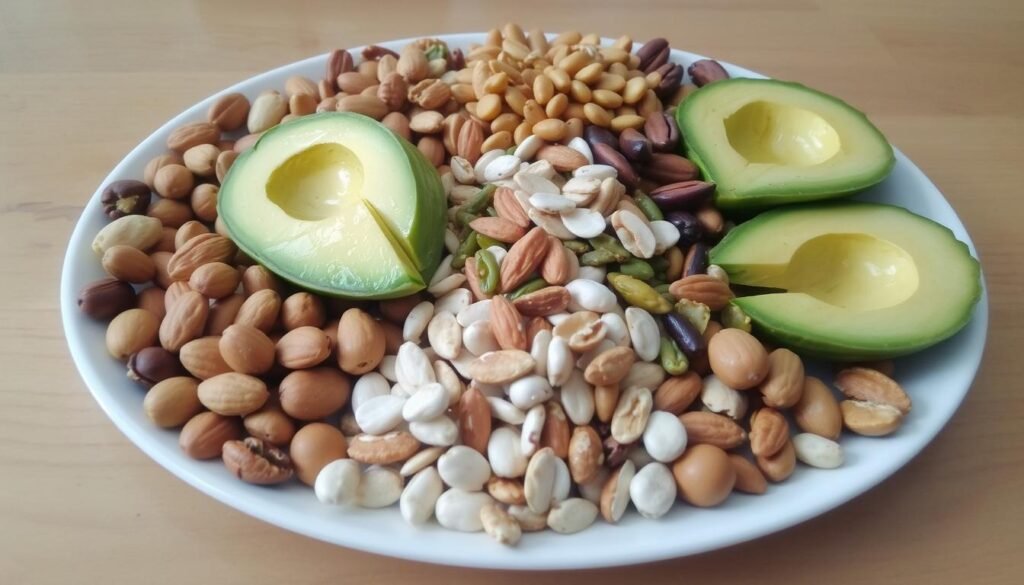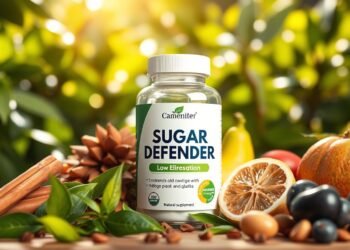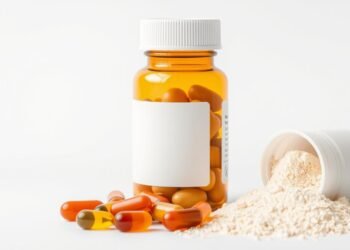It’s easy to cut down on fat after working out. You just need to know how to use proteins and carbs. These help your muscles recover and stop fat from building up. Drinking water also helps your body work better.
After you exercise, eat a balanced meal in 30-45 minutes. This helps your body take in nutrients better. Eating 10-25 grams of good protein helps your muscles and stops fat.
Key Takeaways
- Consume a balanced meal within 30-45 minutes post-workout to enhance nutrient absorption.
- Include 10-25 grams of high-quality protein in post-recovery meals to support muscle protein synthesis.
- Hydration is key to help your body recover.
- Stay away from too much fructose in carbs after working out to avoid stomach problems.
- Good nutrition after working out should mix carbs and amino acids for best recovery.
Understanding Post-Workout Fat Storage
After working out, our bodies start to recover. They refill glycogen and fix muscles. Knowing this helps us avoid extra fat after exercise.
What Happens to Your Body After Exercise
Hard exercise uses up muscle glycogen fast, in about 20 minutes. Eating carbs after helps a lot. It makes insulin, which helps muscles get ready for more activity.
What carbs we eat matters a lot. Natural carbs keep blood sugar steady. But, bad carbs can make blood sugar go up and down. So, picking the right carbs is key for recovery.
The Role of Insulin in Fat Storage
Insulin helps cells take in glucose. It’s very important after we exercise. It helps muscles store energy again. So, eating carbs and proteins within an hour helps a lot.
Common Myths About Post-Workout Nutrition
Many think not eating carbs after working out helps lose fat. But, carbs are important for muscle recovery. Another myth is that any food is okay after a workout. But, bad foods like snacks and processed foods can harm recovery and make fat.
Some think not eating after working out or eating spicy foods helps lose weight. But, this can mess up digestion and recovery. Eating the right foods helps us recover better and reach our fitness goals.
Importance of Timing Your Meals
Eating the right food at the right time is key for getting better after working out. Eating a balanced meal within two hours of your workout helps a lot. It helps your muscles recover, your energy levels go back up, and it helps burn fat.
When to Eat After Working Out
Eating after you work out is very important. The American College of Sports Medicine says eating carbs and proteins within two hours helps a lot. It’s best to eat within three hours after working out. This helps a lot if you want to lose fat.
Ideal Post-Workout Foods
Choosing the right foods after working out is very important. Look for foods with lean proteins and complex carbs. Good choices are grilled chicken with quinoa, Greek yogurt with berries, or a protein smoothie with spinach and banana. These foods give you the right mix of nutrients and keep your energy up.
Balancing Macronutrients
Getting the right mix of nutrients in your meal after working out is key. Eating the right amount of protein and carbs helps fix muscles and fills up energy stores. For example, eating lean meats or plant-based proteins with whole grains or sweet potatoes helps a lot. Remember, when you eat is just as important as what you eat. This helps your body use nutrients better and keeps insulin levels stable.
Nutrient timing is mainly about changing what and when you eat to improve health, performance, and body shape.
The Right Types of Proteins
Choosing the right proteins is key for muscle recovery and fat burning after exercise. The International Society of Sports Nutrition (ISSN) says eat 20 to 40 grams of protein every 3 to 4 hours. This helps your muscles recover best.
Benefits of Lean Proteins
Eating lean proteins is good for you. Foods like chicken, fish, and legumes help fix muscles without extra fat. They help your muscles grow and recover, which is important for burning fat after exercise.

A 2017 study found eating protein before and after working out is just as good. It helps with muscle strength, growth, and body shape.
Vegan Protein Sources
If you don’t eat meat, there are plenty of protein options. Quinoa and tofu are complete proteins, meaning they have all the amino acids your body needs. They help fix muscles and fit well into your diet after working out.
- Quinoa: It has all nine amino acids, making it a complete protein.
- Tofu: It’s full of protein and can replace meat in your diet.
Protein Timing for Fat Loss
When you eat protein matters for losing fat and recovering muscles. It’s best to eat high-quality proteins within two hours after working out. Studies show this helps your body build muscle and keeps it from breaking down.
Here’s a detailed overview:
| Activity | Recommended Intake |
|---|---|
| Post-workout window | 10-20g of protein within 20 minutes after exercise |
| For sessions lasting 90+ minutes | Additional protein to aid recovery |
| Daily intake | For men: 55g per day; For women: 45g per day |
Knowing how protein helps after working out is key. It helps you burn fat better and recover faster.
Optimal Carbohydrate Choices
Choosing the right carbs is key to how your body uses energy and stores fat after exercise. Knowing about complex carbs helps you make smart food choices. This way, you can avoid storing fat and help your body recover well.
Complex Carbs vs. Simple Carbs
Complex carbs like whole grains and veggies give energy slowly. This helps your body recover from exercise better. Simple carbs, like sugary snacks, give quick energy but can lead to fat storage if eaten too much.
How Carbs Affect Fat Storage
Carbs are the main fuel for exercise. They help your body recover. Eating carbs within 48 hours after working out is best to avoid fat storage.
Foods with a low Glycemic Index (GI) are better for blood sugar control. High GI foods, like white rice, are good for quick energy but can cause fat storage if eaten too much.
Carbohydrate Loading Techniques
Carb loading helps store glycogen in muscles before big workouts. Athletes eat 3-12 grams of carbs per kilogram of body weight. This depends on how hard they exercise.
For example, athletes doing high-intensity workouts need 6-10 grams per kilogram. Those doing extreme endurance activities might need up to 12 grams per kilogram. This boosts energy and reduces tiredness.
Hydration and Fat Storage
Hydration is key for losing fat. It’s not just about drinking water. It’s also about keeping electrolytes balanced. This helps your body work right and recover well.
The Impact of Water on Metabolism
Water is important for your metabolism. It helps break down fats into energy. A 2014 study found that drinking water before meals helped women lose weight and fat.
Electrolytes and Recovery
After working out, it’s important to keep electrolytes balanced. This helps your muscles recover and your body perform better. Electrolytes like sodium and potassium keep your body fluids right.
Signs of Dehydration
Knowing when you’re dehydrated is important. Look out for:
- Dry mouth and skin
- Fatigue and dizziness
- Dark yellow urine
- Increased thirst and dry mucous membranes
Not drinking enough water can make losing fat harder. Women need about 9 cups of water a day. Men need 13 cups. Drink more when you’re exercising or it’s hot outside.
Incorporating Healthy Fats
Fats are often unfairly criticized in diet circles. Yet, they are vital for maintaining proper hormonal balance and cell structure. Eating healthy fats like those from avocados, nuts, and seeds can help a lot. It supports overall health and aids in muscle recovery.

Types of Healthy Fats
Adding different healthy fats to your diet is good. Here are some options:
- Monounsaturated fats: Found in olive oil, avocados, and nuts, these fats help in reducing inflammation.
- Polyunsaturated fats: Omega-3 and Omega-6 fatty acids, found in fatty fish like salmon, flaxseeds, and walnuts, help reduce muscle soreness and promote recovery.
- Saturated fats: Found in moderate amounts in coconut oil and dairy products, these fats are essential for hormone production.
How Fats Affect Post-Workout Recovery
Fats in your diet after working out do more than just give energy. They help a lot with muscle recovery. Here’s how:
- Reducing inflammation: Omega-3 fatty acids are great at lowering inflammation and muscle soreness from exercise.
- Promoting cell repair and growth: Polyunsaturated fats are key for fixing and building muscle tissues.
- Regulating hormones: Fats help make hormones like testosterone, which is important for muscle growth and recovery.
Balancing Fat Intake
It’s important to balance fat intake. This way, your body uses fats for energy and recovery without storing too much fat. Think about the types and amounts of fats you eat:
- Moderate consumption: Try to get about 20-35% of your daily calories from fats.
- Focus on quality: Choose healthy fats from whole foods. Avoid trans fats and don’t eat too much saturated fat.
- Integration with other macros: Eat fats with proteins and carbs to help your body use nutrients better. Eating protein-rich foods every 3 to 4 hours helps keep muscle repair going all day.
| Fat Type | Sources | Benefits |
|---|---|---|
| Monounsaturated Fats | Olive oil, avocados, nuts | Reduces inflammation |
| Polyunsaturated Fats (Omega-3 & Omega-6) | Fatty fish, flaxseeds, walnuts | Lessens muscle soreness, promotes recovery |
| Saturated Fats | Coconut oil, dairy products | Essential for hormone production |
Adding the right fats to your diet after working out has many benefits. It helps reduce inflammation and improves muscle recovery. By knowing the benefits of fats and choosing the right sources, you can improve your recovery and performance.
The Role of Exercise Intensity
How hard you work out affects how your body uses food after exercise. Different workout levels can help or hurt your fat loss. Knowing how to mix up your workouts can improve your fitness.
High-Intensity Training Effects
High-intensity training (HIT) is great for losing fat. It makes your body better at using insulin and burns more calories after you stop. But, too hard workouts can make your body use less fat and more muscle glycogen.
Moderate vs. Low-Intensity Workouts
Moderate and low-intensity workouts have their own benefits. Short, moderate workouts don’t change fat burning much but improve endurance. Low-intensity workouts burn less calories right away but help with fat loss over time.
Finding Your Optimal Exercise Zone
Finding the right workout intensity is key. It depends on your fitness level and goals. Women tend to burn more fat than men at the same intensity. Training can make your body better at burning fat.
Customizing your workout intensity helps burn calories and boosts metabolism. This supports long-term fat loss and health.
Monitoring Portion Sizes
It’s key to control how much food you eat to avoid too many calories. This can help prevent gaining fat, even with healthy foods. Knowing the right serving sizes and using tools can help keep your meals in check. This is a great way to avoid gaining fat after working out.
Understanding Serving Sizes
Knowing the right serving sizes is important for controlling your meals. The plate method is a good guide:
- 1/2 of the plate for vegetables
- 1/4 of the plate for protein
- 1/4 of the plate for carbohydrates
This method balances your food well and helps with portion sizes. You can also use your hands to measure. Carbs should be as big as your palm, protein as big as your hand, and veggies two palms.
Meal Prepping for Success
Preparing meals ahead of time is smart. It makes sure you eat the right foods for recovery and losing fat. It also helps you control how much you eat and avoid eating too much.
A study from 2019 found that eating slowly makes you feel fuller. This makes meal prep a good way to control your portions.
Tools to Help Track Portions
Tools like measuring cups, scales, or apps can help you manage your portions. Keeping a food diary is also very helpful. It lets you track what you eat.
Portion control plates, as seen in a 2022 review, can also help. The British Heart Foundation suggests waiting 20 minutes before getting more food. This helps you know when you’re full.
| Tool | Benefit |
|---|---|
| Measuring Cups & Scales | Precisely measure food portions |
| Food Diary | Track and manage food consumption |
| Mobile Apps | User-friendly way to monitor intake |
| Portion Control Plates | Visual aid for portion sizes |
Lifestyle Factors That Influence Fat Storage
Keeping healthy isn’t just about what you eat and exercise. Many lifestyle choices matter too. Things like managing stress, getting enough sleep, and sticking to habits are key. They help stop extra fat from building up after working out and keep you feeling good overall. Let’s dive into these important areas.
Stress Management Techniques
Too much stress can hurt your fitness plans. It raises cortisol, a hormone that makes fat, mainly around your belly. To fight this, try stress-reducing activities like meditation, exercise, and spending time with friends. Doing hobbies and deep breathing can also help you stay calm and healthy.
Sleep Importance for Recovery
Good sleep is essential for getting better and losing fat. The first 90 minutes of sleep are when your body makes hormones that help you recover and keep muscle. Aim for 7-9 hours of sleep each night to help your body and metabolism work better. Sleep is really important for staying fit.
Consistency and Long-Term Habits
Being consistent is key to losing fat. Building lasting habits, like exercising regularly and eating well, is important. Eating enough protein, not too many carbs, and the right amount of fats helps too. Also, eating at regular times and balancing your food helps keep fat off and muscles strong.
In short, dealing with stress, sleeping well, and being consistent helps stop extra fat after working out. By making these habits part of your daily life, you help your body reach and keep your fitness goals.










